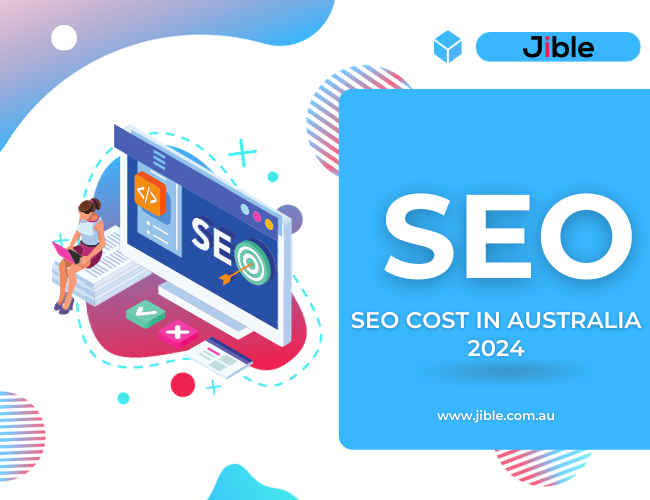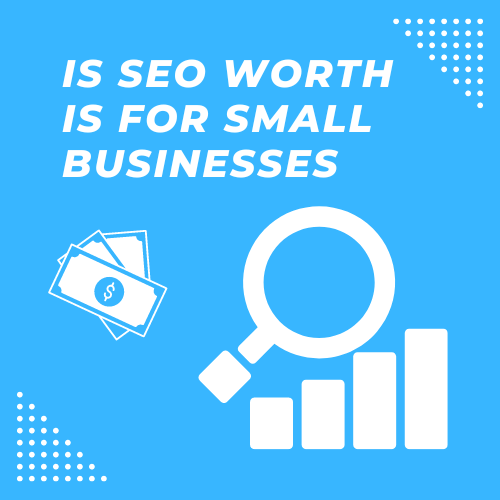How Much Does a Website Cost In Australia?
Wondering how much a website costs in Australia in 2024? You're not alone! The cost can vary a lot, and there's no one-size-fits-all answer. In this article, we'll break down the different factors that go into pricing a website. From design and development to SEO, we've got you covered.
Website Cost

For most small to medium-sized businesses in Australia, you can expect to shell out anywhere from $500 to $5,000 for a website. But hold up, that seems like a pretty wide range, right? Well, the final price tag can change based on a bunch of factors.
Are you a DIY kind of person or are you hiring a pro? Is your site SEO-optimised? Planning on setting up an e-commerce store? The number of pages, the platform you choose, and even the web designer you go with can all impact the cost. We'll get into all these variables in the next section, so keep reading!
Hiring The Right Web Designer For Your Site
Your choice of the individual or agency who does your website design can significantly impact the overall cost of your website. Opting for an experienced designer might come with a higher upfront cost, but the quality and long-term value could save you money down the line. On the other hand, a more budget-friendly designer might seem like a good deal initially, but potential future updates and fixes could end up costing you more. In this section we will cover the benefits and disadvantages of your various options.
Outsourcing Overseas
Outsourcing overseas is gaining traction because, let's face it, it's often cheaper. But remember, you usually get what you pay for. Many folks experience quality issues, miscommunications, and corner-cutting that lead to headaches and extra costs down the road. We know from first hand experience as we have had to fix a ton of these budget outsourced websites, and trust us, it ends up costing the client way more than if we'd built it from scratch.
That said, outsourcing isn't always going to be low quality. If you know what you want and can spot a sketchy designer a mile away, you could make it work. Just a heads-up: going for the absolute cheapest option is a risky move. We've heard plenty of stories about people getting scammed by overseas "web designers." So, be cautious and do your homework.
Web Design Yourself
Designing a website in-house can seem like a budget-friendly move, especially for a small business owner who needs just a few pages to get their business website up and running.
Thanks to advancements in website builders, you don't have to be a techie to create a site. Many of these platforms offer drag-and-drop features that make the process pretty straightforward. But here's the catch: these website builders often come with limitations in functionality.
Plus, the DIY route can actually end up costing you more in the long run. Why? Because time is money. What you save in dollars, you might spend in hours learning web design and development and actually building the site. Outsourcing can get your site live more quickly and efficiently, so weigh your options carefully.
Hiring an Agency
When it comes to hiring an agency, the cost spectrum is wide and varied. Their is also a variance of services such as full service development agencies, or subscription based web design agencies. Larger agencies often have a reputation for being expensive, and there's a reason for that. They may have more overhead costs or use third-party services for specific tasks like SEO or content creation. This layering of services can inflate the overall cost of your project, sometimes unnecessarily. Additionally, big agencies might dazzle you with high promises, but there's a risk they could fall short, leaving you with a sense of overpromise and under delivery.
The experience with larger agencies can also lack a personal touch. You might find yourself dealing with multiple points of contact, which can lead to miscommunications or a diluted understanding of your specific needs. This impersonal approach can make the process more cumbersome and less tailored to your business.
On the other hand, smaller agencies often come with a more reasonable price tag and a more personalised service. These agencies usually have a tighter-knit team, which means they can offer a more customised approach.
They're more likely to invest time in understanding the nuances of your business, your target audience, and your overall goals. This deeper understanding can result in a website that's not just visually appealing but also functionally effective and aligned with your business objectives.
So, when you're in the market for an agency, consider what you value more: the extensive resources and potential expertise of a larger agency, or the personalized, attentive service that a smaller agency can provide. Each has its pros and cons, and the best choice depends on your specific needs and what you're willing to compromise on.
Hiring a freelancer
Hiring freelance web designers can be a cost-effective alternative to agencies, often providing that personal touch that larger firms might lack. However, freelancers come with their own set of variables. Experience levels can range widely, and there might be gaps in their skill set or knowledge that could affect the quality of your website.
To mitigate these risks, it's a good idea to look for a vetted freelancer. Doing so can give you a better shot at finding someone who's not only affordable but also skilled and reliable, ensuring you get the most bang for your buck.
Hiring Inhouse
Hiring in-house for website maintenance can be a viable option, especially if your organisation is large and sophisticated enough to warrant a full-time web developer. In such cases, having someone on staff can streamline processes and make ongoing maintenance more efficient. However, there are some additional things to consider.
Training staff for a role that's not full-time can get expensive and may not offer a good return on investment in the long run. Additionally, managing in-house staff can be challenging if website maintenance and development are outside your area of expertise.
Without a clear understanding of the work involved, it can be difficult to allocate time and resources effectively, potentially leading to inefficiencies or blockages in your workflow. So, while an in-house option can make sense for some, it's important to weigh the costs and complexities before making a decision.
What are all the costs involved?
Now that we've covered the different routes you can take to build a website, let's talk about the various costs involved. If you're outsourcing the work, whether to an agency or a freelancer, the good news is that most of these costs are usually bundled into the price they quote you for the site. However, in this section we will breakdown the costs that they will charge you for, or that you will have to pay for yourself.
The CMS
Some CMS platforms like WordPress are totally free, while others like HubSpot offer free tiers with limited features. Although WordPress is free it will take generally more time to create a website and require more skills, and can end up costing a lot for the plugins needed. Most business owners don't have the technical know how so they will have to hire a web developer if going with wordpress. However generally WordPress comes with the most functionality allowing you to make a custom design, which is why over 45% of sites are built on it.
But if you're eyeing a more simple streamlined CMS be prepared for monthly fees. Premium versions of popular CMS platforms like HubSpot, Shopify, and Wix come with a cost, and these can vary depending on the package you choose. So, while it may be a a very cheap website design, keep in mind that as time goes on and if your site grows, so might your expenses.
Website Hosting
When it comes to website hosting, you'll find a range of pricing options, but generally, it's not going to break the bank. That said, this is definitely an area where the adage "you get what you pay for" holds true. Opting for cheaper hosting might seem like a good idea for your wallet, but it can backfire if your site ends up running slowly, affecting user experience and potentially your search rankings.
Also Some CMS platforms, like HubSpot, actually include hosting in their overall pricing. This bundled approach can simplify things and potentially save you money. It's something to be mindful of when you're comparing costs, because you don't want to end up paying for separate hosting if your chosen CMS already has it covered. So, as you budget for your website, give some thoughtful consideration to your hosting options, balancing both cost and quality.
The Domain
Domain prices can be all over the place, and there's a reason for the variety. A domain with a solid history and website authority can be a goldmine for SEO, giving you a leg up right from the start. Another tactic to consider is choosing a domain and business name based on a keyword.
This can be a smart move for SEO and overall visibility, but be prepared to pay a premium for it. Plus, finding the perfect keyword-based domain can be a challenge since many of the good ones are already taken. So, when you're in the market for a domain, think about its SEO potential and how much you're willing to invest for that edge.
Time for Design and development

If you're considering a DIY route for your web design, it's important to realise that while you might save on upfront costs, you'll be investing a significant amount of time. Learning the ropes, choosing a platform, and actually building the site can eat up hours or even days, depending on the complexity. Time is a resource, and for many, it's a limited one.
When you're looking at agencies or freelancers for web design, the costs can differ widely. One of the main factors affecting web design cost is the efficiency of the agency or freelancer. Some might have streamlined processes that allow them to work faster, while others might take a more meticulous approach that takes longer. Either way, you're often paying by the hour, so efficiency matters when hiring a professional web designer.
Lastly, the importance of choosing a vetted agency or freelancer can't be overstated. A fair, transparent pricing structure can save you headaches down the line. It's not just about getting the job done; it's about getting it done right, without any surprise fees or delays. So, as you navigate the world of web design, keep these factors in mind to make the most informed decision for your time and money.
Are Ecommerce Websites the most expensive sites?
An ecommerce website will generally be more expensive to develop than standard informational websites. The complexity involved in creating an ecommerce site often requires advanced features like software integrations for payment processing, inventory management, and customer relationship management, making it difficult for ecommerce businesses to make cheap websites.
Additionally, a well-designed ecommerce site will have multiple pages for products, categories, and customer accounts, not to mention automation features that integrate seamlessly with your marketing funnel.
However, there's a bit of a shortcut to manage these complexities. CMS platforms like Shopify are tailored specifically for ecommerce site needs. These platforms come with built-in features and integrations that can significantly simplify the development process, thereby reducing costs.
But it's worth noting that while these platforms make it easier to launch ecommerce websites, they can also limit your control and flexibility over the site's functionalities and design. For many ecommerce websites, this trade-off is acceptable, as the benefits of quicker and more cost-effective development often outweigh the limitations.
SEO Considerations

SEO, or Search Engine Optimisation, is all about making your web pages show up higher in search engine results, like Google. Why does this matter? Well, the higher you rank, the more likely people will click on your site, bringing in more website visitors. So, if you're a business creating a website, SEO should be on your radar.
SEO Explained
SEO has three different aspects: On-Page, Off-Page, and Technical SEO.
- On-Page SEO focuses on the content that's actually on your web pages. This includes things like keywords, headers, and meta descriptions. The goal is to create content that's not only valuable to your audience but also easily understood by search engines. This helps your pages rank higher in search results.
- Off-Page SEO is all about building your website's credibility and authority. This is often done through backlinks, which are links from other reputable websites to yours. The more quality backlinks you have, the more trustworthy your site appears to search engines, boosting your ranking.
- Technical SEO is the behind-the-scenes stuff that makes your website run smoothly. This includes site speed, mobile-friendliness, and site architecture. Search engines favor sites that are well-structured and quick to load, so nailing the technical aspects can give you an edge in the rankings.
Each of these aspects works together to improve your website's visibility, driving more traffic and, ultimately, more business your way.
Copywriting
Copywriting isn't just about crafting compelling text; it's also a key component of your SEO strategy. While hiring a skilled copywriter can cost money, especially if you have multiple pages that need content, it's often a worthy investment.
Good copywriting incorporates keyword research, which is crucial for SEO. Keywords are the terms people are likely to type into a search engine when looking for the products or services you offer. By strategically placing these keywords in your content, you increase the chances of your web pages ranking higher in search engine results.
For example this article was written for the keyword "how much does a website cost in Australia" to generate traffic. Did you search up something similar to find it?
So, while copywriting might seem like an added expense, its role in boosting your site's visibility can make it a cost-effective strategy in the long run.
Blog Creation
Businesses can gain a lot from having a blog as part of their website. A well-crafted blog doesn't just offer unique content that engages readers; it also incorporates extensive keyword research to boost SEO.
By using relevant keywords in your blog posts, you increase the chances of your content showing up in search engine results, which in turn drives more traffic to your site. So, a blog isn't just a place to share your thoughts or updates; it's a strategic tool that can enhance your online visibility and engage your target audience.
Link Building
While link building might not be a direct part of the website-building process, it's a crucial element for SEO and can often be the most expensive aspect. Link building involves getting other reputable websites to link back to your site, which boosts your site's credibility in the eyes of search engines. The catch?
It can be time-consuming to secure these valuable backlinks. You'll need to reach out to other site owners, create high-quality content worth linking to, or even negotiate link placements. Despite the effort and potential cost, the SEO benefits of a strong link-building strategy can make it a worthwhile investment for your own website.
Final Considerations

So how much does a website cost in Australia? Wrapping up, the cost of a website in Australia in 2023 isn't a straightforward figure. It ranges widely, from a modest $500 to a hefty $5,000, depending on what you're after.
If you're going DIY with a website builder, you'll save on initial web design costs but might compromise on functionality. Hiring a professional, whether it's a freelancer or an agency, might cost more upfront but can offer you peace of mind and quality results.
Remember, the cheapest option isn't always the best in the long run. Investing in a good designer or a reputable agency can prevent future expenses for fixes and updates. And when it comes to SEO and content, don't cut corners. Just like how its worth it hiring a financial advisor can be a good investment, paying for a good quality website is worth the investment
In essence, balance your budget with your needs and aim for value. A well-spent dollar now could mean greater savings and earnings down the line. Choose the path that aligns with your business goals and gives you the best return on investment.


